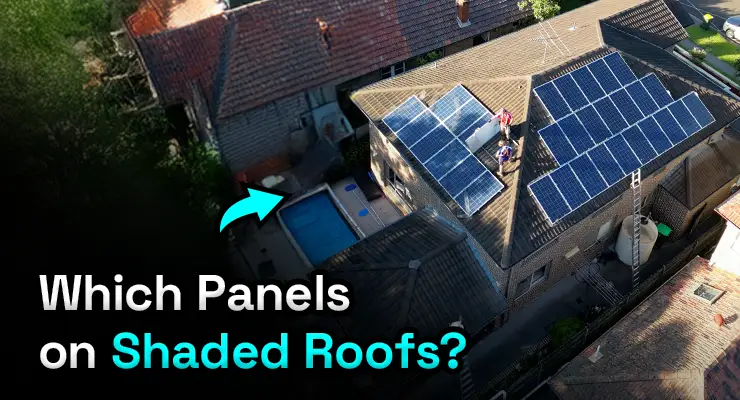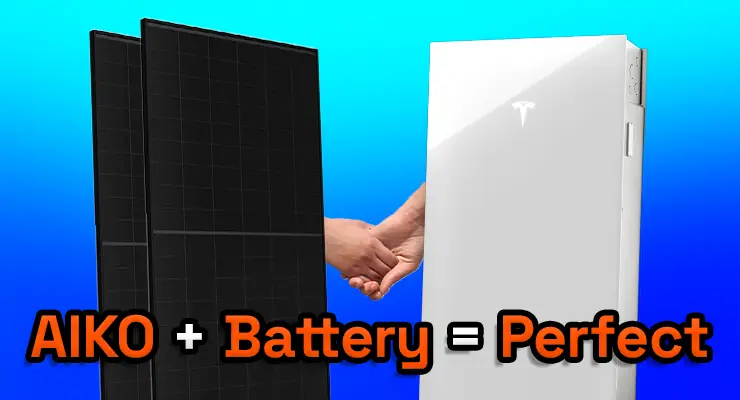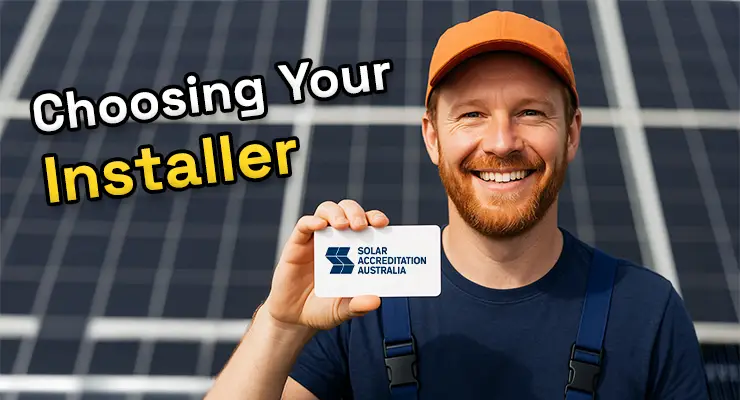Fast read
Although there are many types of solar sales scams, some typical strategies include giving steep discounts, being pushy, providing "no money down" financing, and demanding full payment upfront.
Salespeople may employ high-pressure techniques, including door-to-door canvassing or cold calling, overestimate the system's effectiveness, or misrepresent the system's parts and warranties to buyers.
To avoid these scams, it is important to be well-informed about solar systems and to research the company and the products they offer. You should also be wary of any salesperson who pressures you to purchase the spot or tries to limit your ability to compare other deals and prices.
Be mindful of red flags like unrealistic promises or vague information, and always work with a trusted and reliable solar panel installation company. Go for a local, quality-focused company, as the after-sales service will also be easier to obtain.
What are some Solar Sales Tactics I should look out for?
The most common ways they do this is by calling your phone, door knocking, promising free items with the solar power system or extremely low prices, and linking with a deadline in the hope that you purchase the system then and there. Unfortunately, cheap solar will disappoint and do not fall for solar sales tactics to ensure you have a high-quality product.
Tactic 1 – The massive discount
This scam will usually be sold through door-knocking or cold-calling salespeople. They will usually prepare a well-worded script designed to guide the homeowner through a process that ends up with you buying the system on the spot.
The pitch will usually exaggerate the system’s performance and use misleading descriptions when explaining the components and warranties of the system.
The price will then be revealed and seem relatively high.
If you hesitate at the cost of the system, the salesperson will tactically say something like, “Hang on, let me see if I can talk to my manager”. They will then call the ‘manager’ and two minutes later, unexpectedly, if you agree to sign up and purchase the system on the spot, they will give you a significant discount on the PV system.
In many cases, this new price still exceeds the actual market price for the solution with the products offered.
This scam typically relies on customers lacking knowledge about solar and avoiding opportunities to compare other deals and prices.
To avoid this scam, you must get advice from more than one resource and never sign up to purchase a solar system on the spot without first researching the company and solar systems if you are unfamiliar.

Solar Sale Tactic 2
Another common solar sales tactic to try and sell a solar system is to be aggressive and pushy.
If, for whatever reason, you did invite the door knocker in, then make sure you look out for these red flags.
- The salesperson will explain how a unique financing option, “rebate” program or special price is only available now, aiming at pressuring you to purchase on the spot.
- Overvaluing the production and benefits of the solar system
- Explaining that only one system option is available with their recommended products when there are always a number of different products and sizes available for a solar system.
- Overestimating the system’s expected returns when the budget system will probably malfunction quickly.
We recommend thanking the person for their presentation and asking them politely to leave now – so you can study the material in your own time.
Solar Sale Tactic 3 – No money-down
This is a common solar sales tactic in the solar industry. Just like a no-money-down loan for a car, it may seem like there is a benefit to not having to pay immediately.
There can also be expensive administrative fees, high penalties for late payment of repayments, or early repayment of loans. Usually, redrawing funds on the home mortgage can be the cheapest way to finance a solar system.
Solar Sale Tactic 4 – No interest payment claim
No such thing as an interest-free loan exists, loan companies are not registered for charity. Nevertheless, they will market their offers loudly with the “Interest-free” claim.
So let’s say you buy a 6.6 kW system in Sydney, and you go for quality, and the going price for this equipment and your installation situation is $7,500 after the rebate. Unsurprisingly, the 5-year interest-free offer for the same system will cost you $9,350. So you just paid $1,850 in “free interest” upfront.

Solar Sale Tactic 5 – Asking for all payments upfront
Contrasting with the tactic above, some salespeople will request all the money upfront at a lower price.
This makes homeowners think that by paying the whole price before installation, they are getting a better deal. In reality, the company will take their money, use the STC rebate funds to cover the cost of cheap system components and then subcontract the installation to a desperate installer who will cut corners, leaving your solar energy system in shambles and your money down the drain.
Sometimes in the past, companies who ask for full payment upfront have simply taken the money from a number of customers and then disappeared without even installing products.
Often the solar company closes their doors, and no one can be located, as a result, you have just lost your hard-earned money.
A great solar installer will always be waiting to do business with you in your local area. With a little bit of research, you will be able to feel confident knowing that you are working with a trusted and reliable local installation company.
If the company or salesperson you are communicating with tries any of these solar sales tactics on you, mark them as a red flag that requires further research to see their legitimacy and reliability.
Tactic 6 – Bait and switch
Scammers commonly use these solar sales tactics, advertising good quality panel brands, solar inverters, and possibly batteries to be included in the solution they offer.
However, they have a clause in the contract that says that “because of lack of supply or some other reason, they can swap out the products” for what they call “equivalent quality and alternative brands”.
They will then substitute the advertised quality solar equipment with inferior products to increase their profit and leave you with lower quality equipment than you were expecting.
It is worth checking all the conditions of the sales contract thoroughly to ensure that the company cannot just swap out the products for ones that they determine are equivalent to the products offered initially.



